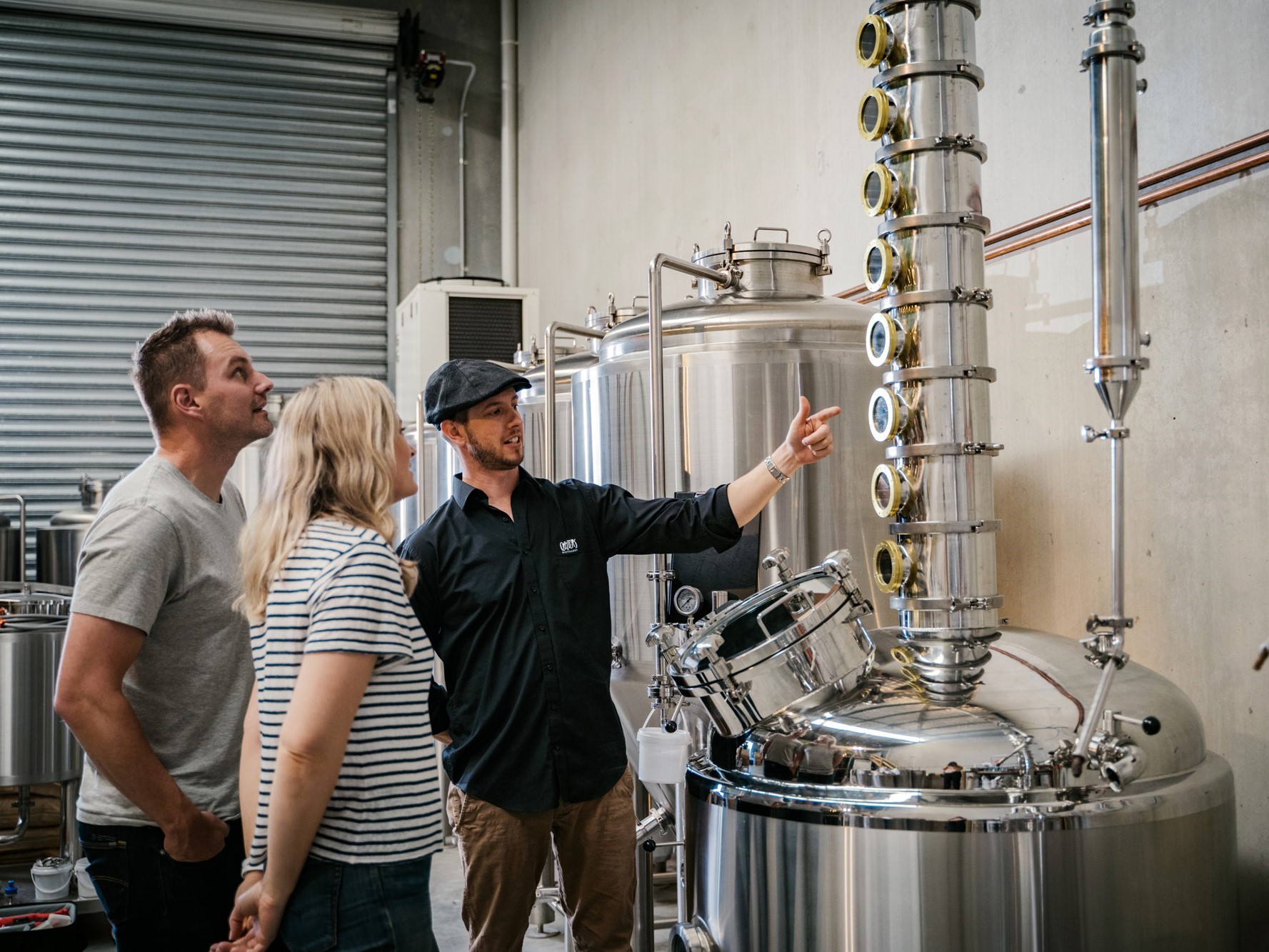Earlier research exploring Coffs Harbour’s agrifood innovation ecosystem identified great potential in the region for value-adding to primary produce and increasing total food production.
Unfulfilled potential for collaboration among ecosystem stakeholders was identified as the main barrier to realising this potential.
Developing a dedicated food innovation and logistics precinct in Coffs Harbour was proposed as one viable way to surmount this obstacle.
The two-year ‘Coffs Harbour Living Lab’ is designed to lay the groundwork for such a precinct.
The project will build on the findings of an initial collaboration between City of Coffs Harbour (the City) and Queensland University of Technology (QUT) under the Future Food Systems CRC.
The research team will again be led by QUT’s Dr Ozgur Dedehayir, with the City’s Section Leader forEconomic Development & Tourism, Nicole McLennan, the designated industry lead.
The project commenced in mid-July 2023 and will run until July 2025.
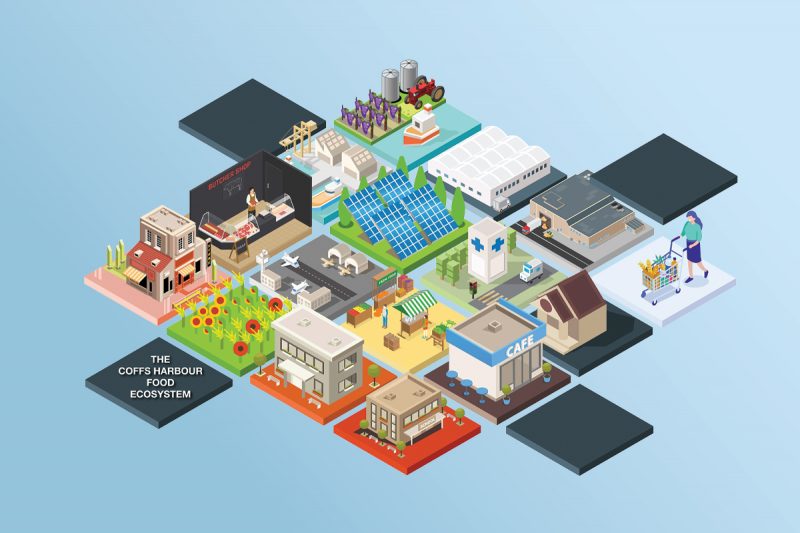
An infographic representing Coffs Harbour’s agrifood innovation ecosystem. Credit: Queensland University of Technology
Why is the new project needed?
In the initial project, ‘Understanding the Food Innovation Ecosystem in Coffs Harbour’ (‘Coffs food innovation ecosystem’), Dr Dedehayir led a QUT team exploring how best to help Coffs region’s agrifood industry boost output capacity and develop new value-added products. The research took the first steps towards realising the City’s broader goal of growing the sector sustainably and helping it realise its economic potential.
“Our earlier exploration of the Coffs Harbour food innovation ecosystem identified great potential in the region for increasing value-addition and overall production output,” Dr Dedehayir says. “An overarching barrier to realising this potential was the lack of collaboration we observed among stakeholders, including growers, producers, retailers, educational institutions and policymakers.”
The ‘Coffs food innovation ecosystem’ project team proposed four strategic pathways to help the region’s agrifood-sector stakeholders surmount this obstacle: developing an agrifood network fostering connection and knowledge exchange; a collaborative skills and training program; an agrifood brand representing Coffs Harbour and – provided a business case can be made for it – a food innovation and cold-chain logistics precinct, potentially at the site of the regional airport.
‘Coffs Harbour has a long history in the agrifood and fisheries industry, and today, the region holds great potential for further growth,’ Dr Dedehayir stated in the project’s final report. ‘A purposefully designed and established “food innovation and logistic precinct” could help alleviate some of the growth limitations enforced by legacy systems.’
The new project will establish a ‘Living Lab’ that supports local stakeholders in co-designing such a Precinct and acts as a focal point for developing other solutions to evolve Coffs’ agrifood ecosystem.
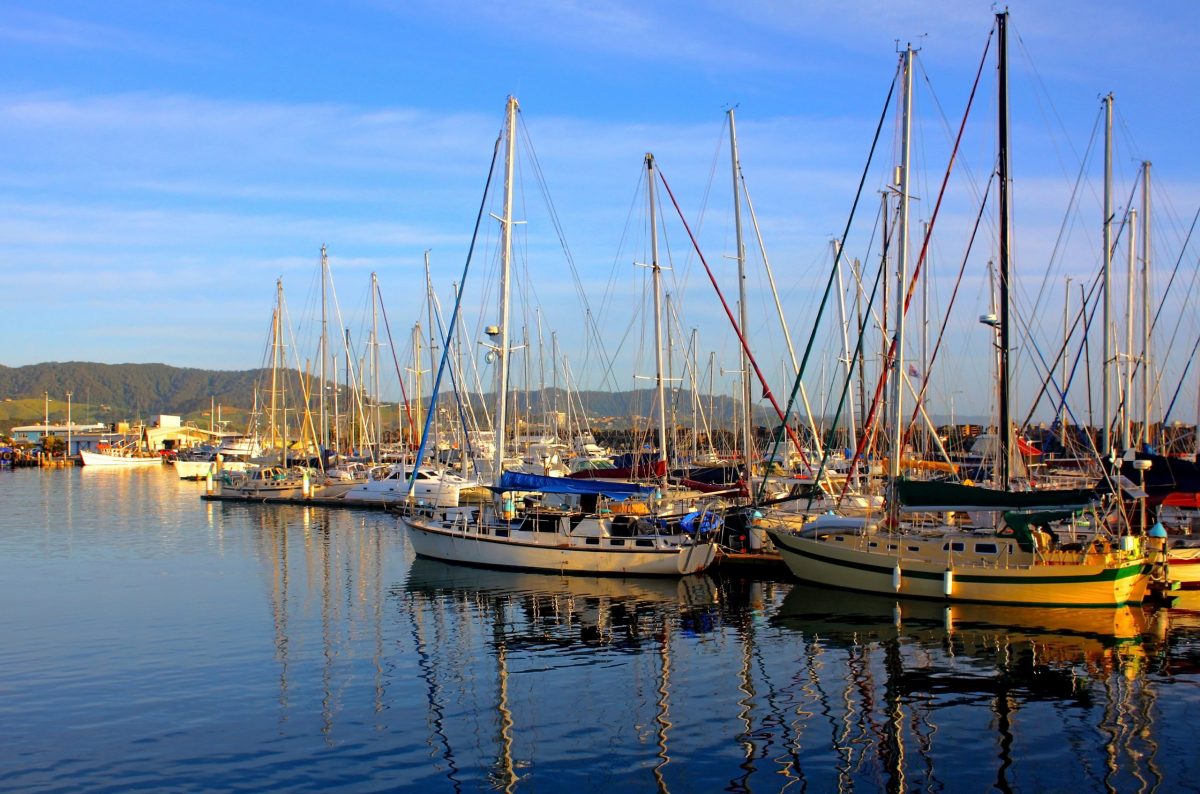
Fishing vessels crowd Coffs Harbour marina. The area is known for its seafood, including rock lobster and Spanish mackerel. Credit: Shutterstock
Why a Living Lab?
The Living Lab concept has been widely deployed across Europe and in North America to accelerate collaborative innovation in complex ecosystems. It can be defined for the purposes of this project as ‘a user-cantered, open innovation ecosystem based on systematic user co-creation approaches that integrate research and innovation processes in real life communities and settings’ (Botnia Living Lab).
According to Dr Dedehayir, Coffs Harbour Agrifood Living Lab – aka CHALL – will be the first agrifood-ecosystem Living Lab in Australia.
“CHALL will be an orchestrator of open innovation processes driving the co-creation of food and beverage innovations,” he says. “It will bring members of Coffs’ diverse and currently fragmented agrifood-ecosystem together to exchange information, knowledge and ideas, and will be a hub for workshops and activities that encourage innovation.”
“In one of the Living Lab’s first ‘innovation projects’, CHALL will task the ecosystem stakeholders identified in our initial research with co-designing an agrifood precinct for the region.
“It will also act as a hub where stakeholders can develop other solutions that boost returns to the region’s agrifood sector – such as value-added products and technologies, and marketing initiatives.”
The project commenced in mid-July and will run until July 2025.
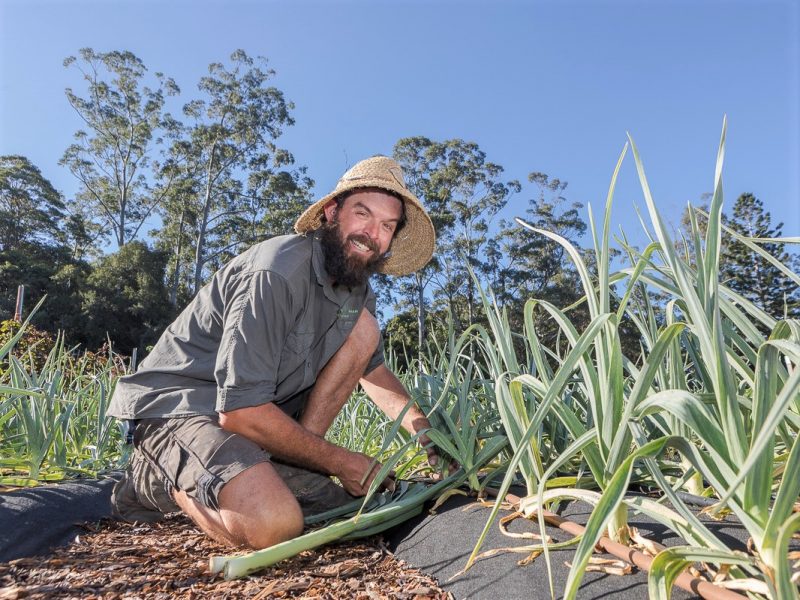
Regenerative farmer, Darren Smith from New Life Farm, Sapphire Beach. Credit: Coffs Coast Marketing/City of Coffs Harbour
What will the project team do?
In Phase 1 of the project, running from July 2023 to January 2024, the research team will establish the Coffs Harbour Agrifood Living Lab, initially as an online platform. The team will also guide the first innovation project to be run through CHALL: the concept design and prototyping of a dedicated agrifood innovation and logistics precinct for Coffs.
“Developing such a precinct was identified by the initial project as a way to realise the economic potential of Coffs’ agrifood sector in a sustainable way, expand knowledge and upskill locals, and promote a distinctive regional brand,” says Dr Dedehayir.
In Phase 2, running from early 2024 until July 2025, various CHALL-centred activities will be run by the QUT team with support from the City of Coffs Harbour. Through workshops, focus groups, and other interactions, the team will encourage constructive collaboration among agrifood-sector stakeholders leading to the development of viable value-adding innovations.
Over this period, CHALL will also work to expand the visibility and reputation of the region’s existing brand, ‘Coffs Coast Harvest’.
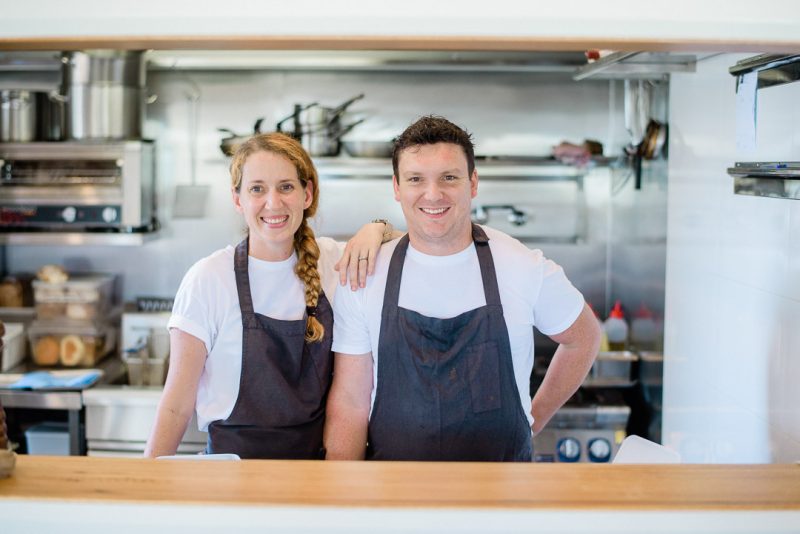
Chefs Carla and Richie from the Hilltop Store in Sawtell feature locally sourced ingredients on their seasonal menu. Credit: City of Coffs Harbour
In a nutshell
CHALL’s principal functions will be to:
- identify potential food and beverage innovation projects through an outreach program, consisting of workshops, focus groups, interviews, surveys and a design charette;
- facilitate conversations with prospective partners for innovation projects (including locally in and around Coffs Harbour, and more broadly, through the Future Food Systems CRC [FFS]);
- ensure the involvement of representatives from the ‘quadruple helix’ of users, policymakers, industry and academia – from the start of the project, and in iterative fashion; and
- support stakeholders in future commercialisation efforts.
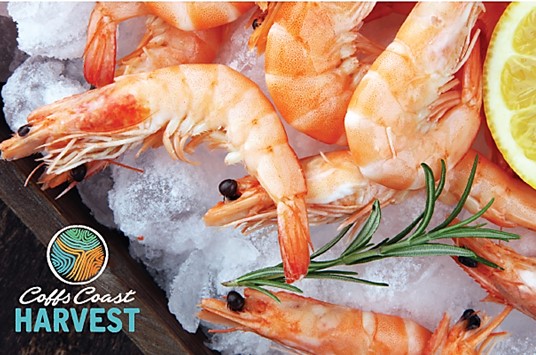
Coffs Coast Harvest is the region’s existing brand. Credit: Coffs Coast Harvest/City of Coffs Harbour
What are the expected outcomes?
Anticipated outcomes of the ‘Coffs Harbour Living Lab’ project include:
- Improved cooperation, shared knowledge and innovative partnerships between agrifood businesses and other stakeholders in the region, leading to improved agrifood and economic outcomes.
- Building on the existing ‘Coffs Coast Harvest’ brand to establish and promote a recognisable agrifood brand for Coffs region, leading to a reputational boost and increased awareness of Coffs’ diversity of food producers and products.
- Opportunities for locals to acquire practical learnings and skills in agrifood-related areas, leading to a better equipped, more sustainable agrifood-sector workforce for the region.
- A co-designed Agrifood Precinct concept and a fully articulated Business Case for improving food production, technology, processing and distribution in the region, principally through the establishment and development of a dedicated food and logistics hub in Coffs Harbour.
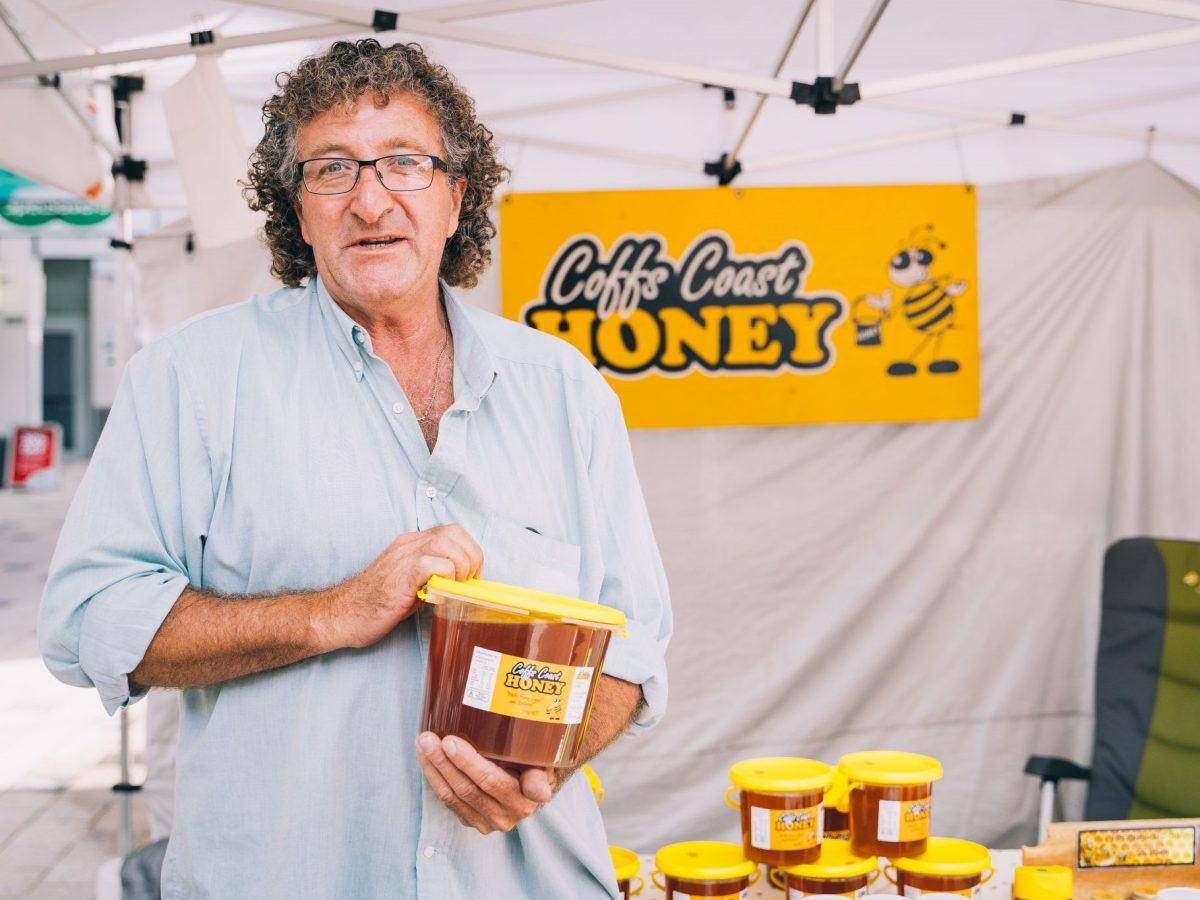
Local producer Alan Wray of Coffs Coast Honey sells his produce at food outlets and markets throughout the region. Credit: Coffs Coast Harvest/City of Coffs Harbour
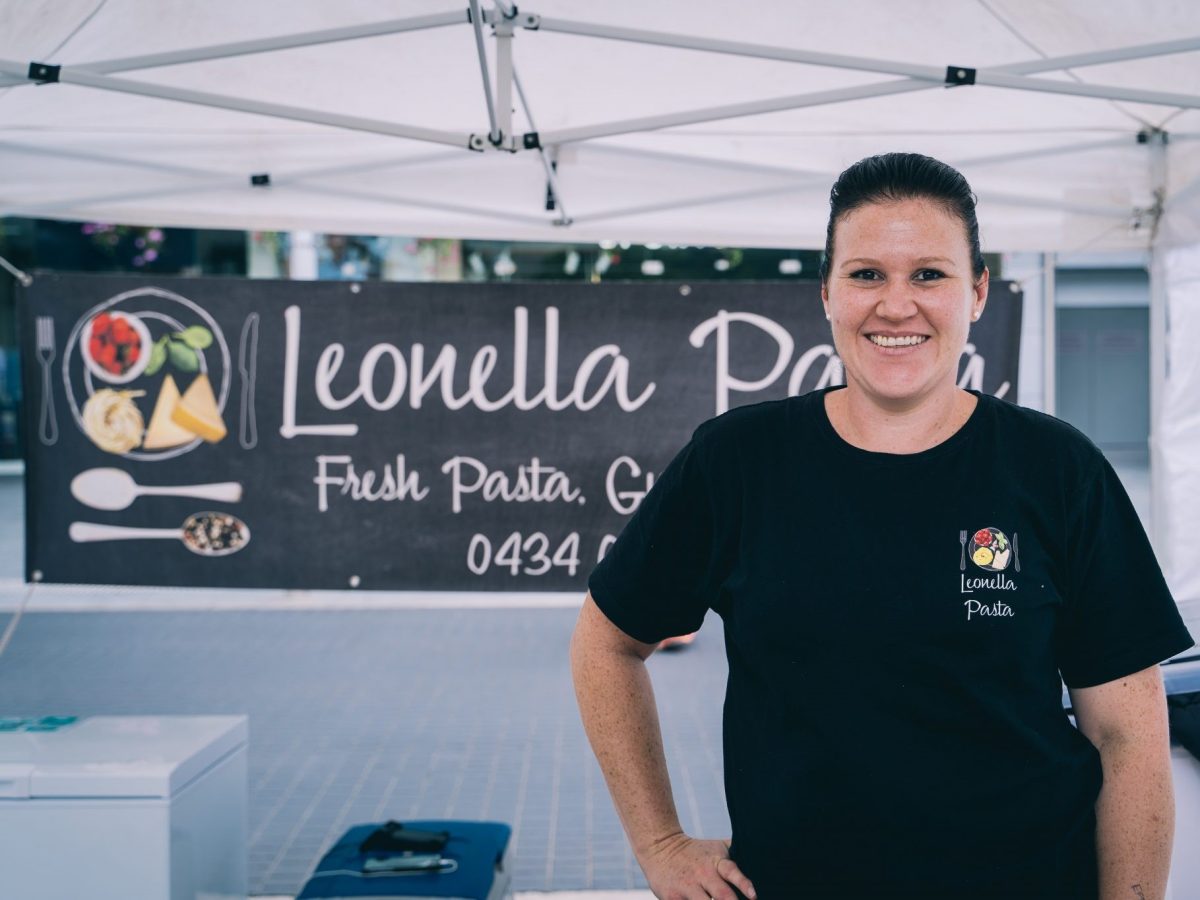
Family-run local business Leonella Pasta specialises in handmade fresh pasta and Italian-style sweets. Credit: Coffs Coast Harvest/City of Coffs Harbour
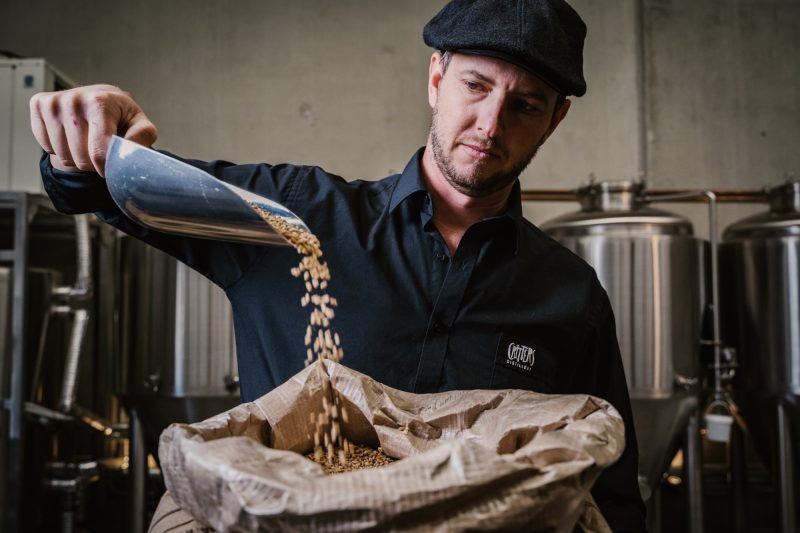
Chris Fraser, maker of award-winning vodka and gin in Woolgoolga. Critters Distillery provides full traceability from ‘paddock to glass’. Credit: City of Coffs Harbour
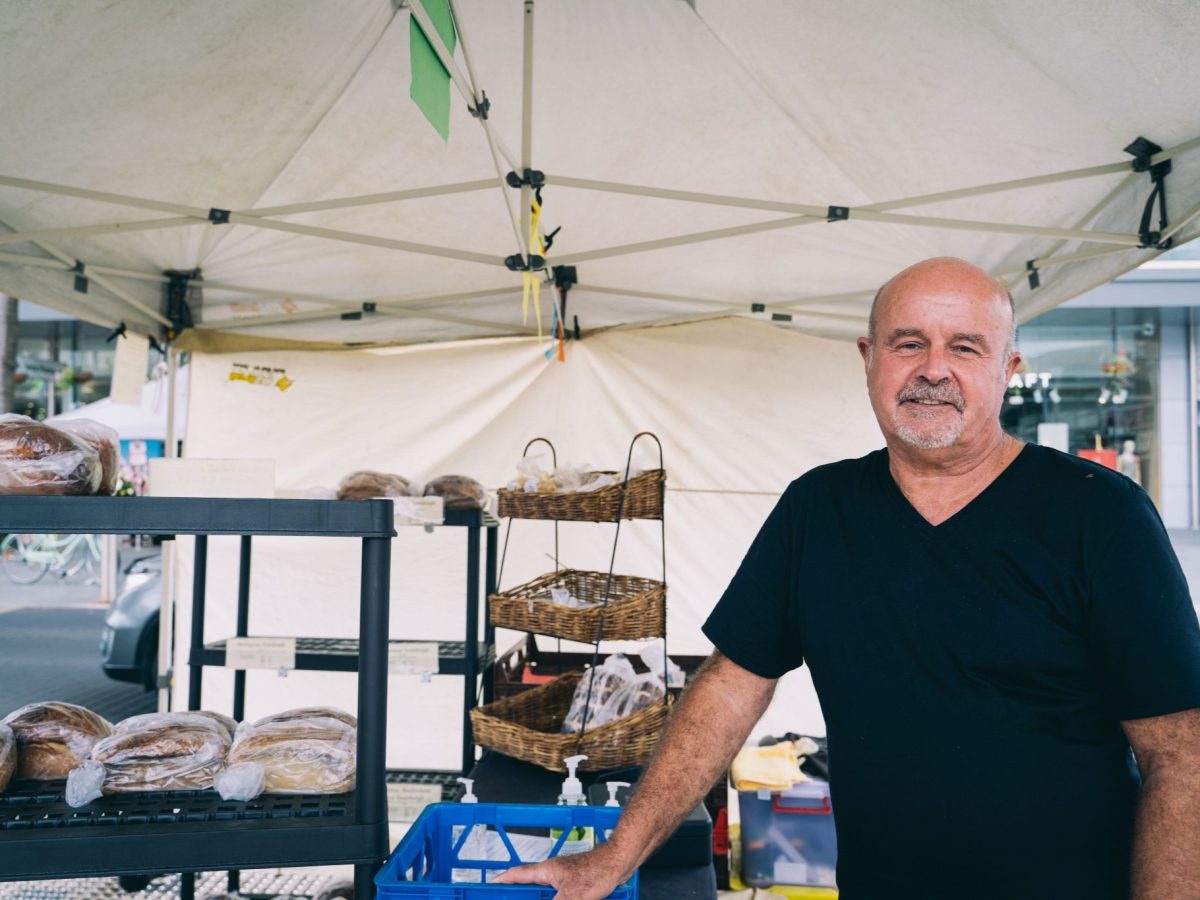
Woolgoola boutique bakery My Twin Loaves makes organic sourdough breads for distribution across Coffs region. Credit: Coffs Coast Harvest/City of Coffs Harbour
What’s the potential impact?
Fostering a sustainable, resilient local agrifood ecosystem lies at the heart of the Living Lab project, says the City’s project industry lead, Nicole McLennan.
“We anticipate that the Coffs Harbour Agrifood Living Lab will not only facilitate innovation; it will serve as a signal to stakeholders of the region’s progressiveness in terms of agrifood innovation and entrepreneurship,” she says. “CHALL activities will also embrace and promote the ‘Coffs Coast Harvest’ brand.”
“Once up and running, Coffs’ Living Lab will be a focal point around which the intended Coffs Agrifood Precinct can be established over a longer period of time,” Ms McLennan says.
If CHALL proves successful, it can be used to drive similar initiatives in other food-producing regions of Australia, says Dr Dedehayir.
“To the best knowledge of the research team, CHALL will be the first Living Lab within the agrifood sector in the country,” he notes.
“Its ultimate objective is to accelerate innovation in Coffs region. Potentially, it will also pave the way for establishing other Living Labs across the nation.”
Lead image: Chris Fraser, maker of award-winning vodka and gin in Woolgoolga, shows off his distilling setup. Critters Distillery provides full traceability from ‘paddock to glass’. Credit Coffs Coast Harvest, City of Coffs Harbour


